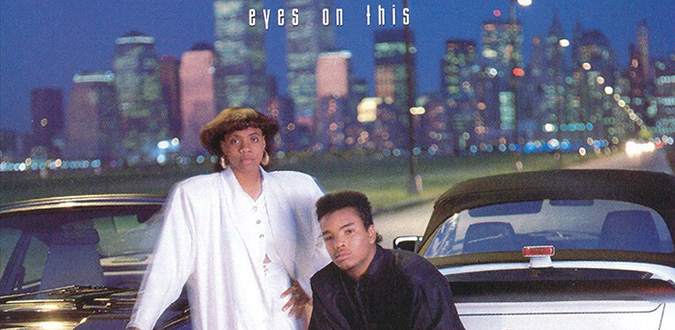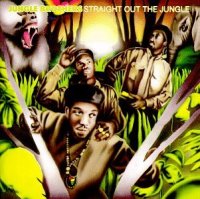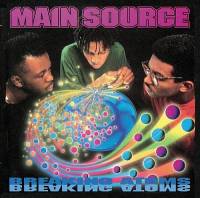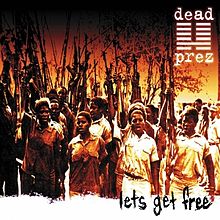Editor’s Note: Today we have a guest post by the esteemed Dr. Michael Plugh, Media Ecologist and my brother from another mother. This post is a little different from the usual on this blog, in that it is a listicle, but just like in any field, knowledge of hip hop requires a grounding in the classics. And yet hip hop also demands alternate canons that seek to center voices that might otherwise go unheard. So, since September marks the beginning of another school year, the time has come to sit up straight and be an engaged student, and listen to Professor Plugh. He’s been known to give a pop quiz.
 I have a confession to make. I don’t really feel comfortable with the idea of “classic records.” I’ve been in my fair share of conversations and debates about which albums ought to be included in the all-time classics, but I’m always wary of canon. Someone ought to be free to tell me that Geto Boys deserve to be on the Mount Rushmore of Rap, and I ought to hear out their reasons before totally shutting them down. Now, to be real about it, I’m probably going to make a forceful argument about why a person making such a claim would be out of their minds, but canon is meant to be challenged. If we close the door on all possibilities, we’re likely to leave out some worthy contenders in our attempt to shut out the wild and outlandish tastes of some fringe musical lunatics. Too often the list of “classic albums” gets closed off to all but the most popular, and famous, records of our collective memory.
I have a confession to make. I don’t really feel comfortable with the idea of “classic records.” I’ve been in my fair share of conversations and debates about which albums ought to be included in the all-time classics, but I’m always wary of canon. Someone ought to be free to tell me that Geto Boys deserve to be on the Mount Rushmore of Rap, and I ought to hear out their reasons before totally shutting them down. Now, to be real about it, I’m probably going to make a forceful argument about why a person making such a claim would be out of their minds, but canon is meant to be challenged. If we close the door on all possibilities, we’re likely to leave out some worthy contenders in our attempt to shut out the wild and outlandish tastes of some fringe musical lunatics. Too often the list of “classic albums” gets closed off to all but the most popular, and famous, records of our collective memory.
Recently, Jamie Robinson over at Hip Hop Golden Age wrote a piece called “5 Records You Don’t Own, But Should.” The piece is an attempt to reel in a handful of less well-known rap albums to bring depth to this public conversation. He includes in his short list some records that don’t immediately come to mind. Offerings from D-Nice, Black Moon, Gravediggaz, Lord Finesse & DJ Mike Smooth, and Schoolly D jump out to grab you and see if you’ve been awake all these years. Do you own those records? Should you own those records? Robinson gives some compelling reasons for each album to be in the classic category. I’m not going to politic his choices. I’m going to drop my own as a compliment and a counterpoint. He stuck to five, so I’ll let that be the game.
5. MC Lyte Eyes on This (1989)
To his credit, Robinson’s author byline includes the statement, “Believes that every ‘Top 5’ discussion should include MC Lyte.…” and while his classic record collection didn’t include an album from MC Lyte, I’m going to rectify that situation. Lyte dropped her debut album “Lyte as a Rock” in 1988. Her two older brothers, Milk Dee and Gizmo of Audio Two, handled the album’s production. I have a soft spot for Audio Two, but “Lyte as a Rock” comes off a little rough around the edges. It’s an important record, as the first full length rap album ever released by a female artist, but for my money “Eyes on This,” released a year later, is a better collection of music. Lyte’s storytelling skills are on full display in tracks like “Cappucino” and “Not Wit a Dealer,” and the force of her personality is on full display in the richly produced “Cha Cha Cha” and “Stop, Look, Listen.” Lyte’s bread and butter is the braggadocio, which shows her roots in the old school game. Her success in blending that bombastic style of rap with a menu of interesting, and often amusing, narratives makes Eyes on This the well-rounded classic you ought to be playing on the regular.
4. Jungle Brothers Straight Out the Jungle (1988)
“Straight out the Jungle” marks the debut of the jazzy, conscious style that came to represent the Native Tongues. Artists like Tribe Called Quest and De La Soul went on to broader recognition and fame, but Jungle Brothers produced one of the most important records of the late-80s to establish the ground for something  different in hip hop. The most famous track on the album, “I’ll House You,” made the rounds in clubs around the country as hip hop and house began to overlap. It’s my least favorite track on that record, but that’s just me. Sometimes peanut butter and chocolate just don’t go well together. I give Jungle Brothers all the credit in the world for experimenting with musical forms, but for my money it’s the funky bassline in the title track “Straight out the Jungle” that works best. The horns and percussion in “Black is Black” are the perfect compliment to Jungle Brothers’ rhyme style and the cameo by Q Tip. One of the most memorable tracks on the album is the minimalist “I’m Gonna Do You,” which shows that less can be more in production as long as you have the artistic chops to forgo all the bells and whistles. If you really like music, “Straight out the Jungle” is a treasure chest of different styles and rhyme schemes.
different in hip hop. The most famous track on the album, “I’ll House You,” made the rounds in clubs around the country as hip hop and house began to overlap. It’s my least favorite track on that record, but that’s just me. Sometimes peanut butter and chocolate just don’t go well together. I give Jungle Brothers all the credit in the world for experimenting with musical forms, but for my money it’s the funky bassline in the title track “Straight out the Jungle” that works best. The horns and percussion in “Black is Black” are the perfect compliment to Jungle Brothers’ rhyme style and the cameo by Q Tip. One of the most memorable tracks on the album is the minimalist “I’m Gonna Do You,” which shows that less can be more in production as long as you have the artistic chops to forgo all the bells and whistles. If you really like music, “Straight out the Jungle” is a treasure chest of different styles and rhyme schemes.
3. Kool G Rap and DJ Polo Wanted Dead or Alive (1990)
Kool G Rap was a staple of Marley Marl’s Juice Crew in the mid-to-late 80s and blew up after his part in “The Symphony” more than held its own next to the immortal Big Daddy Kane. Partnered with DJ Polo, G Rap put out their second album, Wanted Dead or Alive in 1990, a record that hits you in the face from the first track and never lets up. “Streets of New York” is lyrically gritty and musically rich with the unmistakable fingerprints of Large Professor. “Money in the Bank” shows off the lyrical talent that made Kool G Rap’s lisp so well respected, with cameos by Freddie Foxx and Large Professor in an embarrassment of vocal riches. “Erase Racism” combines the quirky style of Biz Markie with the rough and rugged rhyme style of G Rap in a near perfect collaboration. At times the production styles featured in Wanted Dead or Alive are a bit dated for today’s sensibilities, but the album made a significant contribution to the styles of many popular artists who followed him, including the late Biggie Smalls.
2. Main Source Breaking Atoms (1991)
 Whatever talents Large Professor lent to Kool G Rap and Polo, he kept plenty for himself and his Main Source crew. Breaking Atoms is a piece of rap genius. It’s best known for the debut of Nas in “Live at the Barbeque,” but the record has so much more to offer beyond Mr. Illmatic. The album is a virtual clinic in sampling and looping, and it can be enjoyed simply for the production, but it doesn’t stop there. Large Professor’s lyrics, against a sample of Sister Nancy’s “Bam Bam,” are damn near perfect in “Hanging Out.” The song is essentially just a list of shout outs, but it stands up against tracks with more elaborate narrative and more forceful messages. Likewise, “Looking at the Front Door” is really just a list of relationship complaints, but it’s done with such artistic flair. Large Professor fills Breaking Atoms with his poetic genius and you ought to be bumpin’ the album right now if you aren’t already. Just do it.
Whatever talents Large Professor lent to Kool G Rap and Polo, he kept plenty for himself and his Main Source crew. Breaking Atoms is a piece of rap genius. It’s best known for the debut of Nas in “Live at the Barbeque,” but the record has so much more to offer beyond Mr. Illmatic. The album is a virtual clinic in sampling and looping, and it can be enjoyed simply for the production, but it doesn’t stop there. Large Professor’s lyrics, against a sample of Sister Nancy’s “Bam Bam,” are damn near perfect in “Hanging Out.” The song is essentially just a list of shout outs, but it stands up against tracks with more elaborate narrative and more forceful messages. Likewise, “Looking at the Front Door” is really just a list of relationship complaints, but it’s done with such artistic flair. Large Professor fills Breaking Atoms with his poetic genius and you ought to be bumpin’ the album right now if you aren’t already. Just do it.
1. Dead Prez Let’s Get Free (2000)
 This is an album I really love. I mean I have a deep and profound love for what M-1 and stic.man did with this album. Conscious rap comes in many forms. Mainly, it comes in some version of KRS-One’s old school mode or in the Native Tongues jazzy sensibility. Dead Prez come out with force in Let’s Get Free with Black Panther socialist militancy, haunting production, and the sort of uncompromising lyrical delivery that keeps you riveted track after track after track. The album teaches in the same way your favorite teacher, wise uncle, or street preacher teaches. It keeps you on the edge of your seat as wisdom fills your ears and the style of the delivery stimulates every last one of your nerve endings. It’s hard to put this record on the radio. It’s hard to hype it if you’re business is to sell shit to people. The very basis of the album is to tear down the structures of white supremacy, capitalism, and the colonial mindset that makes both of them possible. Once you’ve swallowed that, Scope doesn’t really do shit for you. It takes more than mouthwash to get rid of the stank of colonized-mind-breath. The song that garnered the greatest air play from Let’s Get Free is “Hip Hop,” which combines funky percussion, a fat electronic buzz of a baseline, and revolutionary lyrics. In the second verse, stic.man asks the listener, “Would you rather have a Lexus or justice / A dream or some substance / A Beemer, a necklace, or freedom?” The album is split into two parts. Corresponding to the two sides of a record or tape, the tracks are divided into “Today” and “Tomorrow.” The feel of the “Today” side of the album is distinctly militant and defiant with a host of songs forcefully projecting revolutionary themes. The “Tomorrow” side of the album is more lyrical and emphasizes softer musical compositions based on themes of love, growth, and community. One of my favorite features of the album is the presence of two hidden tracks, buried well beyond the final notes of the last track listed on the liner notes. “Propaganda” and “The Pistol” are two of the hottest tracks on Let’s Get Free, but they float out in the ether for the most committed listeners to discover.
This is an album I really love. I mean I have a deep and profound love for what M-1 and stic.man did with this album. Conscious rap comes in many forms. Mainly, it comes in some version of KRS-One’s old school mode or in the Native Tongues jazzy sensibility. Dead Prez come out with force in Let’s Get Free with Black Panther socialist militancy, haunting production, and the sort of uncompromising lyrical delivery that keeps you riveted track after track after track. The album teaches in the same way your favorite teacher, wise uncle, or street preacher teaches. It keeps you on the edge of your seat as wisdom fills your ears and the style of the delivery stimulates every last one of your nerve endings. It’s hard to put this record on the radio. It’s hard to hype it if you’re business is to sell shit to people. The very basis of the album is to tear down the structures of white supremacy, capitalism, and the colonial mindset that makes both of them possible. Once you’ve swallowed that, Scope doesn’t really do shit for you. It takes more than mouthwash to get rid of the stank of colonized-mind-breath. The song that garnered the greatest air play from Let’s Get Free is “Hip Hop,” which combines funky percussion, a fat electronic buzz of a baseline, and revolutionary lyrics. In the second verse, stic.man asks the listener, “Would you rather have a Lexus or justice / A dream or some substance / A Beemer, a necklace, or freedom?” The album is split into two parts. Corresponding to the two sides of a record or tape, the tracks are divided into “Today” and “Tomorrow.” The feel of the “Today” side of the album is distinctly militant and defiant with a host of songs forcefully projecting revolutionary themes. The “Tomorrow” side of the album is more lyrical and emphasizes softer musical compositions based on themes of love, growth, and community. One of my favorite features of the album is the presence of two hidden tracks, buried well beyond the final notes of the last track listed on the liner notes. “Propaganda” and “The Pistol” are two of the hottest tracks on Let’s Get Free, but they float out in the ether for the most committed listeners to discover.
Honorable Mention – Poor Righteous Teachers Pure Poverty (1991)
Making this short list, I found myself torn between a number of other artists and albums. One of the most important artists to miss the cut is Trenton, New Jersey’s Poor Righteous Teachers, who occupied my regular rotation in the early-1990s alongside Gang Starr, EPMD, and a handful of other better-known groups. PRT made a minor splash in 1990 with their hit “Rock Dis Funky Joint” from the album Holy Intellect. As in the case of MC Lyte’s Lyte as a Rock, PRT’s first album deserves a lot of credit for its importance in broadening the horizon of rap sounds of the time. Similarly, however, it was the group’s follow up album that really flexed its artistic muscle. Pure Poverty was beautifully produced by Trenton’s own Tony D, who tragically died in a car accident in 2009. Lead vocalist, Wise Intelligent, is really the force behind Poor Righteous Teachers. His voice and lyrics carry the Five Percent-themed songs made popular by PRT in a singjay style, impossible to imitate or duplicate. Backing vocals from Culture Freedom meet production elements created by DJ Father Shaheed in a hypnotic and powerful mix. The biggest hit on the album was the dancehall-inspired “Easy Star,” which hooks listeners with a very catchy rhyme flow and braggadocio style. Changing up the recipe, “Strictly Mash’ion” duplicates the catchy elements of Wise Intelligent’s delivery over a jazzier baseline. As I look up and down Pure Poverty’s track list, all I see is classics. Treat yourself to some PRT and you’ll want to listen to everything they have to offer. There’s never been anything else like it.
 Mike Plugh is a lecturer in the Department of Communication and Media Studies at Fordham University. He serves on the Board of Directors of the New York State Communication Association and the Media Ecology Association. His research interests include technology and sociocultural change, education, community, and collective identity. He believes that teachers teach and do the world good, while kings just rule and most are never understood…
Mike Plugh is a lecturer in the Department of Communication and Media Studies at Fordham University. He serves on the Board of Directors of the New York State Communication Association and the Media Ecology Association. His research interests include technology and sociocultural change, education, community, and collective identity. He believes that teachers teach and do the world good, while kings just rule and most are never understood…



I still would have gone with Lyte as a Rock for my MC Lyte choice on this list.
Also, if you wanna go a little further back I don’t think the DIsco 3 (aka The Fat Boys) get enough love (they even made that masterpiece of cinema, The Disorderlies!)
LikeLike
Wait…are you actually saying ILTFA on my listicle?
LikeLike
Even a broken Zach Metz is right twice a day! :P
LikeLike
Are you calling him out, when you know he doesn’t read? That’s cold.
LikeLike
Zach wanted me to add Tom Hanks’ son “Chet Haze” to the listicle. And unless he drops by to comment, I’m going to stick to that story.
LikeLike
Pingback: Back to the Old School: 5 Classic Hip Hop Albums You Need to Learn | SoundFreak
I’ll take #2 and #5 off your list and add #1 Eric B. & Rakim – I Know You Got Soul, #3 Big Daddy Kane – Warm It Up, Kane, and #4 KRS-One-Outta Here! Great picks! Peace!
LikeLike
I think the only reason those aren’t there is because they are well known to a lot of fans, but Dr. Plugh wanted to expose some other names though his list.
LikeLike
Yeah…those are all great albums, but they don’t need a list. They transcend all lists. This is more an exercise of “Remember these? If so, go listen to them again. If not, what are you waiting for?”
LikeLike
Your list is your list. I took from your list and created a list. You may not want or feel that my picks are appropriate, and I would be inclined to disagree. It would seem that anyone posting comments about unsung Hip Hop Classics would know that the love of Hip Hop is what has brought us here together.
I only made a comment to show support for the creator of the post. If I knew that my comment would be taken out of context then I would probably just have read the blog and made no comment. My list only shows a humble opinion, which is what this is all about.
LikeLike
I’m not sure why you’re upset. I wasn’t trying to attack your opinion. I share your opinion. I was simply trying to explain why the list didn’t include what you and I both agree are game changing albums. I’m sorry if my reply came off the wrong way. I appreciate that you read and offered your thoughts.
LikeLiked by 1 person
I love this list regardless of what anyone says hiphop is a beautiful vibe that brings minds together
Jose Matias
Ceo
http://www.rhymeorreasonpros.com
LikeLike